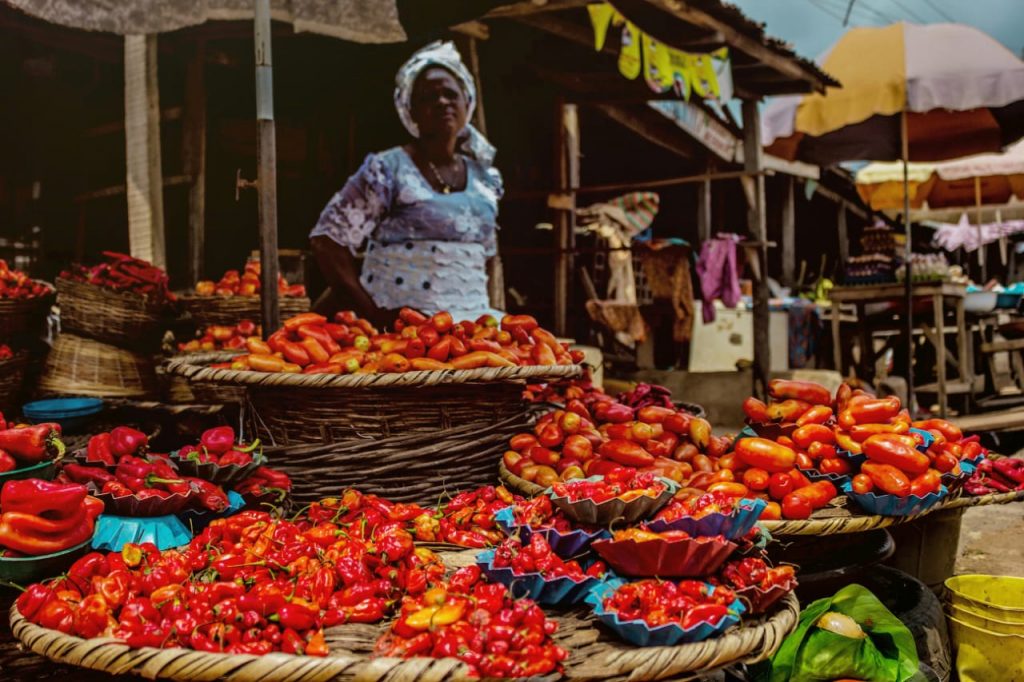
Southwest Nigeria pulsates with entrepreneurial energy. From bustling marketplaces like Agbowo Market in ibadan, Bodija market ibadan, idumota in the land known for its excellence, Sasa market in Osogbo and myriads of SMEs to the high-tech startups in Lagos, SMEs (Small and Medium-sized Enterprises) are the backbone of the region’s economy. But what does it take to succeed in this vibrant yet challenging landscape? Let’s delve into the opportunities and hurdles faced by SMEs in southwest Nigeria, drawing inspiration from local success stories and offering valuable insights for aspiring entrepreneurs.
- Access to Finance:
Securing funding remains a major roadblock for SMEs in Southwest Nigeria. Despite the critical role these enterprises play in driving economic growth and job creation, they often struggle to obtain the necessary financial resources . High-interest rates imposed by banks and financial institutions make borrowing expensive and almost impossible. Additionally, the loan application process is often cumbersome and bureaucratic, discouraging many small business owners from even attempting to secure funding. This lack of access to affordable finance can stifle growth, prevent expansion, and limit the ability to invest in new technologies or hire additional staff. For many SMEs, the financial barriers become insurmountable, leading to stagnation or even business failure.
Click here to learn more: ResearchGate: Challenges to Nigerian SMEs – Expert 1 (SMEDAN South-West Director viewpoints) Infrastructure Constraints:
The operational efficiency of SMEs in Southwest Nigeria is severely hindered by poor infrastructure. An unreliable power supply is one of the most significant issues, as frequent power outages disrupt production schedules, increase operational costs due to the need for alternative power sources like generators, and reduce overall productivity . Moreover, poor transportation networks complicate the logistics of moving goods and services, both for sourcing raw materials and delivering finished products to markets. Inadequate access to modern technology further exacerbates these challenges, as it limits the ability of SMEs to adopt efficient business practices, engage in e-commerce, or utilize advanced manufacturing techniques. These infrastructure constraints collectively pose significant obstacles to the growth and competitiveness of SMEs in the region .
Limited Business Skills: A significant barrier to the growth of SMEs in Southwest Nigeria is the limited business skills among entrepreneurs and their staff. Many small business owners lack formal training in critical areas such as marketing, finance, and human resource management . This skill gap can result in poor business planning, inadequate financial management, ineffective marketing strategies, and suboptimal human resource practices. Without the necessary skills, SMEs struggle to innovate, attract and retain customers, manage their finances efficiently, and expand their operations. Investing in business education and training programs tailored to the needs of small business owners could help bridge this gap and unlock the growth potential of SMEs in the region .
Opportunities Abound:
Large Market: Nigeria boasts a massive population with a growing middle class, presenting a vast potential customer base for innovative products and services . (Click to learn more: https://www.nigerianstat.gov.ng/)
Government Initiatives: The Nigerian government and regional bodies like the DAWN Commission offer various programs to support SMEs, including access to loans, training workshops, and business development services [5, 6]. (Cliick to learn more: https://dawncommission.org/)
E-commerce Boom: The rise of e-commerce platforms provides SMEs with a cost-effective way to reach a wider audience. (Click to learn more: https://www.jumia.com.ng/)
Cultural Richness: Southwest Nigeria’s unique culture fosters a thriving creative industry, with opportunities for businesses in fashion, music, and art. (Click to learn more: https://creativeconomy.britishcouncil.org/places/nigeria/).
Venturing Beyond Ibadan:
The entrepreneurial spirit extends throughout southwest Nigeria. Here’s a glimpse into some of the vibrant marketplaces you might encounter in different regions:
Lagos: Home to the iconic Alaba International Market, a titan in the electronics industry. This sprawling complex caters to a global clientele, showcasing the scale and ambition of Lagos’s business scene.
Abeokuta: Known for the Itoku Market, Abeokuta is famous for its rich cultural heritage. Itoku Market is the heart of the indigenous Adire textile industry. Adire is a traditional Yoruba fabric dyed in unique patterns, and this market is the go-to destination for both locals and tourists seeking these beautifully crafted textiles. The market also offers a variety of other goods, including traditional arts and crafts, making it a hub of cultural and economic activity.
Osogbo: In Osogbo, the Ayegbaju International Market stands out as a major commercial center. This market is known for its diverse range of products, including agricultural produce, clothing, and household items. It serves as a vital trading post for the people of Osun State and beyond. The Ayegbaju International Market also plays a significant role in the local economy, providing livelihoods for numerous traders and artisans.
Akure: Akure boasts the bustling Oba Adesida Market, which is a focal point of commercial activities in Ondo State. This market is renowned for its variety of fresh produce, grains, and traditional Yoruba spices. It is a key destination for both wholesale and retail buyers, and it plays an essential role in the food supply chain of the region. The vibrancy of Oba Adesida Market reflects the agricultural richness and trading acumen of the local populace.
Oyo: In Oyo, the Akesan Market, also known as the “king’s market,” is a historic and culturally significant marketplace. It is one of the oldest markets in the region and is famous for its wide array of goods, ranging from traditional clothing and jewelry to local foodstuffs and crafts. The market serves as a central point for trade within the ancient town and attracts buyers and sellers from neighboring areas, maintaining its reputation as a vital economic hub.
These marketplaces highlight the dynamic and diverse nature of commerce in Southwest Nigeria, reflecting the region’s rich cultural heritage and entrepreneurial spirit.
Writer: JEREMIAH SOLOMON JONATHAN EMAIL: digitaljerry246@gmail.com



